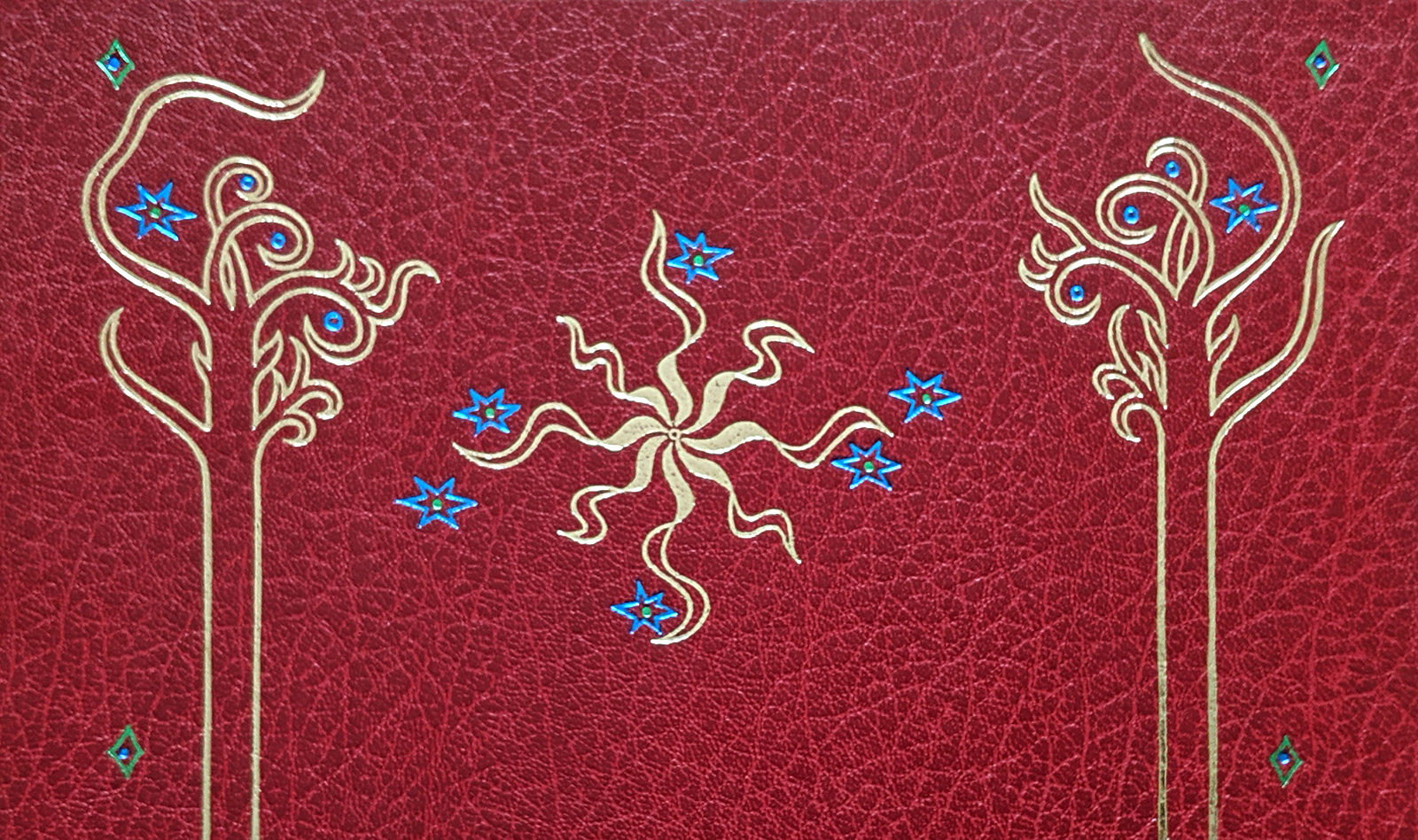
A few weeks ago, I learned of a massive audio interview project being conducted by Marquette University to gather the input of 6000 Tolkien lovers on what made them fans and what his work has meant to them. Each interview is limited to 3 minutes. I figured, why not? I’ll do it!
As it turned out, I spent considerably longer than that writing up my notes ahead of time and editing repeatedly to make sure they didn’t go on too long. It was an interesting task trying to boil down my thoughts to the most relevant and/or meaningful points, and very enjoyable time spent considering all the things I love about his work. Here’s what I ended up with.
When did you first encounter the works of J. R. R. Tolkien?
It must have been the late 1970s, when I was 8 or 9, when my father read “The Hobbit” and “The Lord of the Rings” aloud to me and my younger brother. I went on to read TLotR on my own many times; I vividly remember the boxed set of trade paperbacks that was the family copy of the saga.
Why are you a Tolkien fan?
I was a wild child who loved to climb trees and explore in the woods near my Vermont home. Tolkien’s appreciation of nature appealed to me immensely, especially the ents and the forests of Rivendell and Lothlorien. The idea of living in a mallorn tree was really exciting to me when I was young!
I also loved his humor. The hobbits are often funny, and Gandalf scolding hobbits is even funnier. Many of the other characters – even Gollum! – have an understated wit that provides a good counterbalance to the more lofty dialogue and serious subject matter.
Eowyn was also important to me as a girl looking for representation in tales of adventure. Some criticize Tolkien for not including more female characters in his stories, but I never felt that way – and still don’t, even though I consider myself a radical feminist and have read, and appreciated, many woman-centric fantasies since I first encountered Tolkien. To paraphrase Shakespeare, Tolkien’s women, “though they be but few, are fierce”, and I never felt that my life as a girl was disregarded or unvalued in his work. The opposite, in fact!
Something I didn’t consciously realize when I was younger, but can recognize now, is that the length and rhythm of The Lord of the Rings feels like the perfect shape of a story to really suck me in and make me feel as if something has *happened*, both in the narrative and in my own mind and heart as I read it. It’s long, it’s lumpy, it has a lot of highs and lows. It’s a real journey.
What has he meant to you?
Tolkien’s ecological awareness, his love of language, his distrust of the power-hungry, and his long view of history all resonate deeply with me. It’s hard to know how much of that is influence and how much of it is agreement, since I was introduced to his work when I was so young. But regardless, I feel we are “fellow travelers” in many ways.
And each time I have reread The Lord of the Rings, I have found more to appreciate. There is no way I could have understood when I was younger how nuanced and sympathetic his depictions of depression and PTSD are, but I can now. And I find his depiction of loss, both personal and cultural, more true and more emotionally resonant with each reread. The fellowship succeed in their task, but some die, some are hurt, and all are changed over the course of the story. Some psychological wounds – like those suffered by Frodo – cannot be made better. Some beautiful things fade and disappear. There is a profound sadness to it, but it is a sadness that so many of us must face at one time or another. It’s so much more true than an uncomplicated happy ending.
Addendum: For those who are curious, the audio recording has been posted. It’s interview #209.